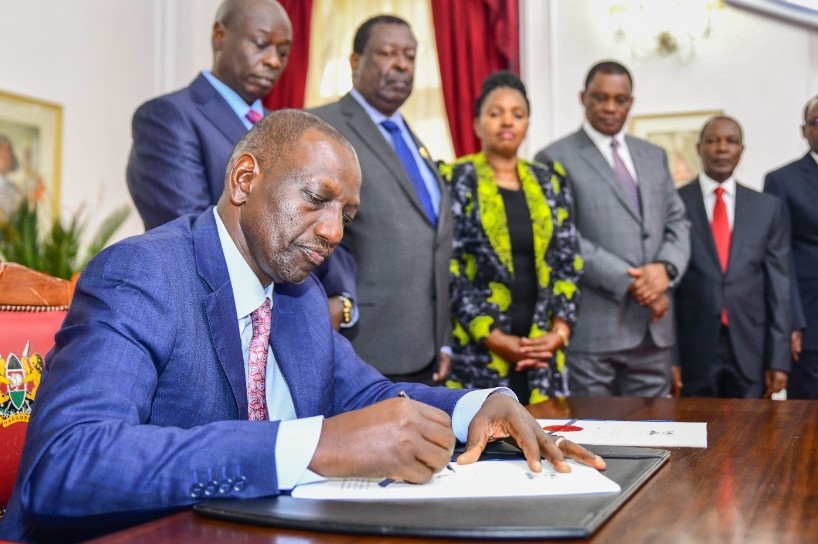President William Ruto signed the Finance Bill into law on Monday at State House Nairobi after it was approved by the National Assembly last week.
Members of Parliament on Wednesday night passed President William Ruto's proposed Finance Bill, 2023.
The Bill passed after a third reading by the National Assembly Finance and National Planning Committee chairman, Kuria Kimani.
This now means Kenyans must dig deeper into their pockets to fund Ruto's first budget as Head of State.
The Bill was passed even as the Opposition and the ruling party engaged in a heated debate over the proposals it contains.
Did you read this?
The Bill had 87 proposed amendments, some of which were approved on Tuesday as the National Assembly debated them deep into the night.
Key among the proposals passed was the 16 per cent value-added tax on fuel, up from 8 per cent.
He also assented to the Appropriations Bill and the Supplementary Appropriations (No. 2) Bill, 2023, warranting the additional spending by the National Government of Kes22.9 Billion from the Consolidated Fund.
This reduces overall expenditure by Kes25.5 Billion compared to the revised total National Government expenditure approved in the Supplementary Appropriations (No. 1), Act 2023.
The reduction comprises an increase in recurrent amounting to Kes9.5 Billion and rationalisation of development spending by Kes35 Billion.
The scaling down in spending aligns with the Government’s fiscal consolidation efforts in the light of debt servicing payments.
The Appropriations Bill 2023 authorises the withdrawal of money from the Consolidated Fund for the expenditure of the National Government.
It is the first Appropriations Bill under the Kenya Kwanza Government and, therefore, seeks to align its Manifesto and promises by assigning actual resources to meet various services and projects.












